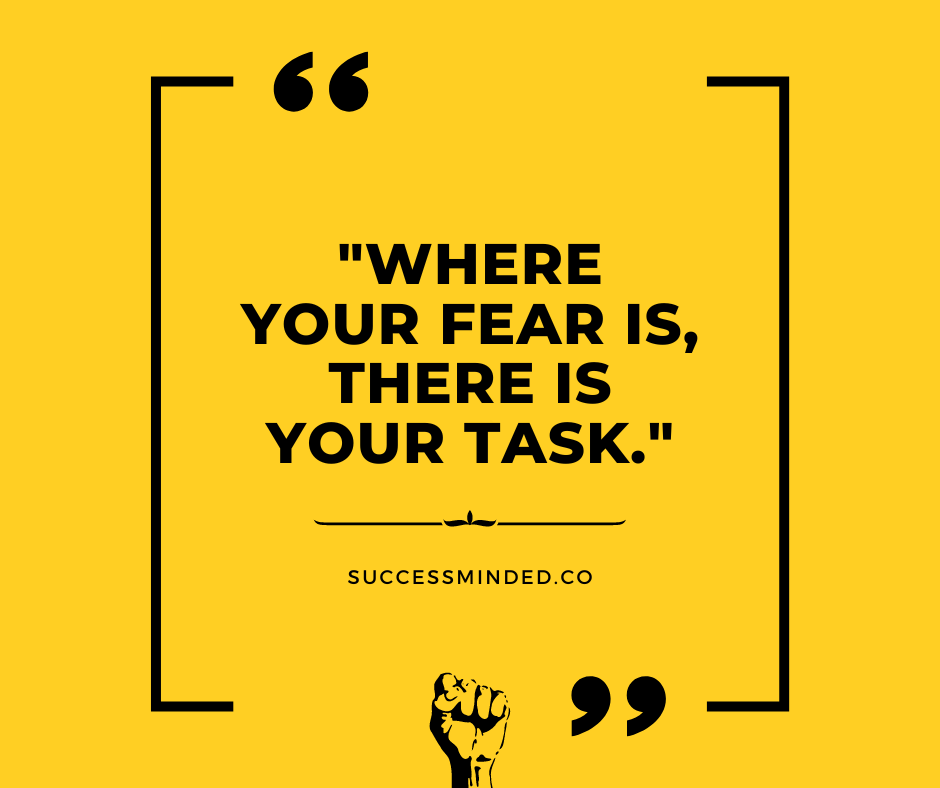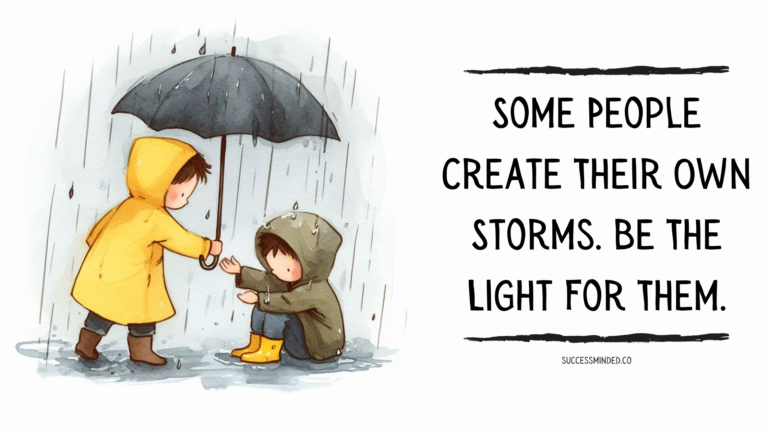Ever Feel Like You’re Stuck in Place, Too Afraid to Take the Next Step? Here’s How to Break Free
Do you ever catch yourself turning down opportunities or playing it safe out of fear of failure, judgment, or the unknown? If so, you’re far from alone. We all have fears holding us back in life.
As Swiss psychologist Carl Jung famously said, “Where your fear is, there is your task.” This quote recognizes that our fears point to exactly where we need to go next to evolve and expand our lives.

Meaning of the Quote, “Where your fear is, there is your task.”
“Where your fear is, there is your task.”
Carl Jung
This profound quote recognizes that our fears often point us directly towards areas of life requiring inner work and development.
Jung suggests that the things that make us most afraid tend to highlight our perceived weaknesses, skill deficits, or underdeveloped aspects of self. Fear draws our attention to the parts within, crying out for expansion and evolution. The tasks and situations we dread most are actually guideposts for where we need to go next to access our full potential.
According to Jung, fear can act as a helpful signal to unlock new levels of personal power and capabilities. Avoiding our fears only leads to stagnation, while confronting them fosters growth.
He saw our fears as pointing to the edge of our comfort zones, which is exactly where real transformation occurs when pushed. Rather than something to run from, Jung invites us to see fear as an opportunity to better understand ourselves and expand our lives.
Fear Acts as a Signal
At its core, fear alerts us to perceived threats and weaknesses within ourselves. It draws our attention towards skills we haven’t yet mastered, capabilities we haven’t fully developed, or parts of ourselves we haven’t fully realized.
For example, a fear of public speaking may mean you need to improve your communication and leadership abilities. A fear of vulnerability likely indicates you have work to do around deepening self-intimacy, building trust in relationships, and embracing openness.
So, rather than just an unpleasant emotion to escape, Jung suggests reframing fear as a helpful signal about areas for self-improvement. The tasks that scare you most are often exactly the ones that will lead to tremendous personal growth when you finally face them.
Why Confronting Fears Matters
Pushing past limiting fears provides so many benefits:
- Building confidence and resilience
- Reducing anxiety and worry
- Promoting empowerment and freedom
- Unlocking hidden potential
- Opening up new possibilities
- Discovering new strengths
- Expanding your comfort zone
- Fostering emotional strength
Continually avoiding fears stunts your growth. But moving through them expands your skills, resourcefulness and maturity. It allows you to show up fully as your authentic self, unburdened by self-doubt or limitations.
Strategies to Face Your Fears

When a fear feels like the Mt. Everest, remember you can break it down into smaller steps:
- Start small to build tolerance incrementally. Give a 2-minute speech instead of an hour.
- Gather knowledge to demystify the fear. Understanding defuses anxiety.
- Reframe the fear as excitement to channel nervous energy positively.
- Practice calming techniques when feeling anxious or overwhelmed.
- Develop skills through mentors, classes, books, or experience.
- Lean on social support, like joining a group or talking it through.
- Focus on celebrating progress, not demanding perfection.
Conclusion
The next time fear is holding you back, remember Jung’s quote. See the fear as a signal towards growth. Then, slowly but surely, take steps to transform the fear into power. The only way out is through. Your expanded potential lies just on the other side.




Pingback: "I Am Not Afraid of Storms": Learning to Sail Your Own Ship Through Stormy Seas – Success Minded